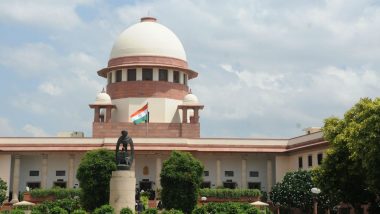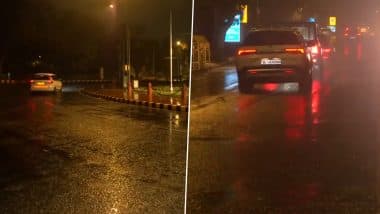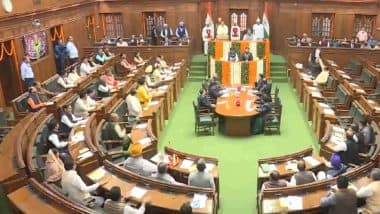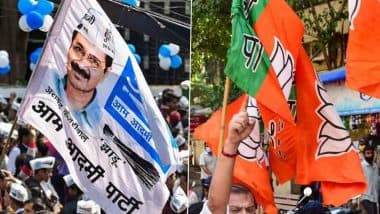New Delhi, November 4: The Delhi government faced searching questions from the Supreme Court over the much-publicised odd-even vehicle rotation scheme within hours of its launch on Monday, as to why it stopped plying of cars that are less polluting compared to two and three wheelers and taxis.
The apex court, which was hearing the pollution matter of Delhi-National Capital Region (NCR), asked the Delhi government as to what it was achieving from the scheme.
A bench comprising Justices Arun Mishra and Deepak Gupta said 2-wheelers, 3-wheelers and taxis would ply more during the odd-even scheme whereas pollution emissions from cars, especially petrol-run, was less as compared to taxis and auto rickshaws. The counsel appearing for the Delhi government said that 3-wheelers and taxis in the national capital run on CNG which is much cleaner than petrol and diesel. Odd-Even Scheme in Delhi: Signature Bridge to Remain Closed from November 5-14.
The bench directed the Delhi government to place before it by November 8 the data of pollution levels of previous periods when the scheme was put in place as a measure to curb air pollution in the region. It also directed the Delhi government to place data, if any, about the difference being caused to the pollution level by stopping plying of four-wheelers during the previous odd-even scheme.
"Autos and taxis will ply more during odd-even. They will make pollution. Why are you stopping cars which are less polluting?," the bench asked the counsel representing the Delhi government. "What are you achieving by this odd-even? Lesser number of cars is not a solution. Taxis will ply more during this," the bench said.
The counsel said that during the odd-even scheme, less number of petrol and diesel run cars would ply on roads and people would also start sharing their trips with others. "Do you have any figure for this?," the bench asked after which the counsel said he would place the data before the court.
The bench also questioned the Delhi government whether it really think that people would start sharing their trips with others during the odd-even scheme. "Banning diesel vehicles is still okay but what is the point of this odd-even. The issue is that you are stopping one vehicle but other vehicles will ply. You have to augment public transport," the bench said, adding, "You do not have funds for metro. You are not contributing for this."
During the hearing, Justice Gupta observed, "Three years back when I joined as a judge of the Supreme Court, it was said that 3,000 buses will be added to public transport. Till now, only 300 odd buses have been added".
"See our mentality. We do not want to take metro. We have some odd notion that travelling in metro is below our dignity. Nobody want to go to the airport in metro," Justice Gupta observed. One of the counsels appearing in the matter pointed to the court that during the odd-even scheme, the private CNG vehicles have not been exempted. The odd-even scheme, which kicked off Monday, would be in force in Delhi till November 14.




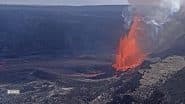





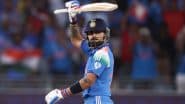


 Quickly
Quickly










